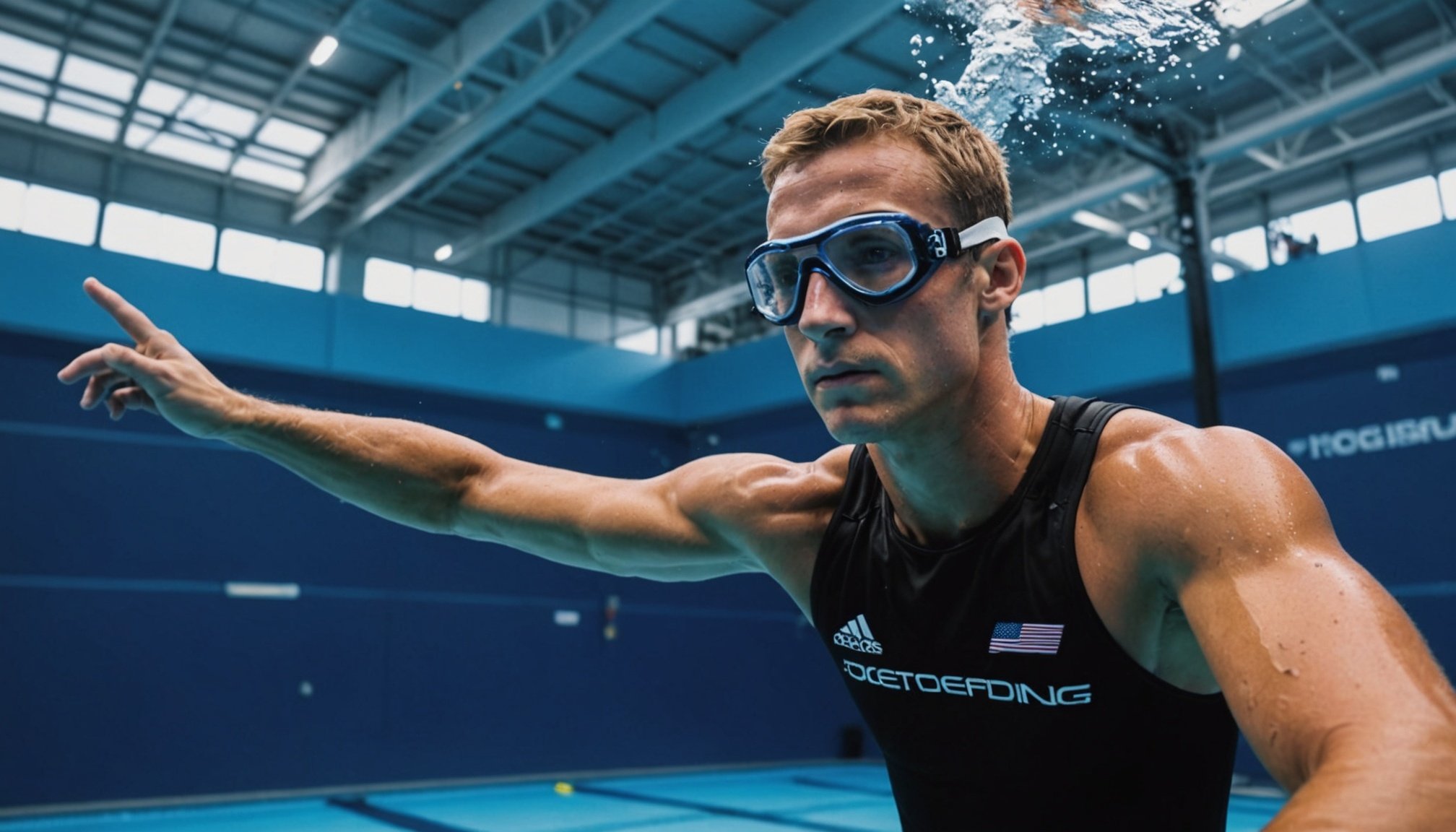Mastering Mental Focus: The Ultimate Guide to Preparing for Success in Competitive Diving
Understanding the Importance of Mental Focus in Diving
When it comes to competitive diving, the physical aspects of the sport are often the first things that come to mind. However, the mental component is just as crucial, if not more so, for achieving success. Mental focus is what sets top athletes apart from the rest, enabling them to perform at their best even under the most pressure-filled conditions.
“Mental toughness is the ability to consistently perform at a high level, even when faced with adversity,” explains Isobel Ross, a mental performance coach, in her podcast on Infinite Potential. This resilience is built through a combination of mental training, self-awareness, and strategic practice.
This might interest you : Top Strategies to Safeguard Adolescent Track Athletes from Overtraining Risks
Building Mental Toughness Through Training
Mental toughness is not an innate trait but rather a skill that can be developed over time with the right training and mindset.
Focus on Self-Talk and Positive Reinforcement
Self-talk is a powerful tool in mental preparation. Athletes who practice positive self-talk tend to perform better and recover faster from setbacks. Here are some tips to incorporate positive self-talk into your training:
In parallel : Mastering Disc Golf: The Ultimate Grip Technique for Enhanced Throwing Accuracy
- Pre-Dive Affirmations: Before each dive, take a moment to repeat positive affirmations to yourself. This could be something as simple as “I am prepared,” “I am strong,” or “I can do this.”
- Post-Dive Reflection: After each dive, reflect on what went well and what could be improved. Focus on the positives and use constructive feedback to adjust your approach.
- Daily Mantras: Incorporate daily mantras into your routine, such as during your morning or evening meditation. This helps to reinforce a positive mindset consistently.
Practice Under Pressure
Training under pressure is essential for building mental toughness. Here’s how you can simulate high-pressure situations during your practice:
- Mock Competitions: Organize mock competitions with your team or training group. This helps you get used to the competition environment and the pressure that comes with it.
- Time Trials: Set time limits for your dives and aim to complete them within those limits. This simulates the time pressure you might face in actual competitions.
- High-Intensity Training: Incorporate high-intensity training sessions into your routine. This could include strength training, cardio exercises, or high-intensity interval training (HIIT).
Managing Breath and Body for Optimal Performance
Breath control and body awareness are critical components of diving, both in terms of physical execution and mental focus.
Breath Control Techniques
Breath control is essential for divers, whether it’s for scuba diving, freediving, or competitive diving. Here are some techniques to help you master breath control:
- Deep Breath Exercises: Practice taking deep breaths to expand your lung capacity. This involves inhaling deeply through your nose, holding your breath for a few seconds, and then exhaling slowly through your mouth.
- Breath Hold Training: Gradually increase your breath hold time through regular practice. Start with short holds and gradually increase the duration as you build up your endurance.
- Relaxation Techniques: Use relaxation techniques such as progressive muscle relaxation or meditation to help manage stress and improve breath control.
| Technique | Description | Benefits |
|---|---|---|
| Deep Breath Exercises | Inhale deeply through the nose, hold, and exhale slowly through the mouth. | Increases lung capacity, reduces stress. |
| Breath Hold Training | Gradually increase breath hold time. | Improves endurance, enhances focus. |
| Relaxation Techniques | Use progressive muscle relaxation or meditation. | Reduces stress, improves overall well-being. |
Body Awareness and Physical Fitness
Physical fitness and body awareness are vital for divers. Here’s how you can enhance these aspects:
- Strength Training: Incorporate strength training into your fitness routine to improve your overall physical strength and stability.
- Flexibility and Mobility: Regularly practice stretching and mobility exercises to maintain flexibility and range of motion.
- Active Recovery: Ensure you include active recovery days in your training schedule. This could involve light swimming, yoga, or other low-intensity activities to help your body recover.
Overcoming Fear and Anxiety
Fear and anxiety are common obstacles that divers face, especially when it comes to performing complex dives or competing at high levels.
Identifying and Addressing Fears
The first step in overcoming fear is to identify what specifically causes your anxiety. Here are some steps to help you address these fears:
- Reflect on Past Experiences: Think about past dives where you felt anxious or fearful. Identify the specific moments or actions that triggered these feelings.
- Gradual Exposure: Gradually expose yourself to the situations or dives that cause fear. Start with small steps and build up your confidence over time.
- Mental Rehearsal: Practice mental rehearsal techniques where you visualize yourself performing the dive successfully. This can help build confidence and reduce anxiety.
Pre-Competition Mental Preparation
Pre-competition mental preparation is crucial for ensuring you are in the right mindset to perform at your best.
- Visualization Techniques: Visualize yourself performing well in the competition. Imagine the diving board, the crowd, and the sensation of executing a perfect dive.
- Positive Self-Talk: Use positive affirmations to boost your confidence and calm your nerves.
- Breath Control and Relaxation: Practice breath control and relaxation techniques to manage any pre-competition jitters.
Long-Term Goals and Consistent Practice
Achieving success in competitive diving is a long-term process that requires consistent practice and a clear vision of your goals.
Setting Realistic Goals
Setting realistic goals helps you stay focused and motivated. Here are some tips for setting effective goals:
- Short-Term Goals: Set short-term goals that are achievable within a few weeks or months. This could include improving your technique in a specific dive or increasing your overall fitness level.
- Long-Term Goals: Set long-term goals that align with your overall vision for your diving career. This could include qualifying for a national competition or improving your ranking.
- Tracking Progress: Keep a journal or log to track your progress. This helps you see how far you’ve come and what areas need further improvement.
Consistent Practice and Active Recovery
Consistent practice is key to improving your skills and maintaining your physical fitness.
- Regular Training Schedule: Maintain a regular training schedule that includes a mix of high-intensity training, strength training, and active recovery.
- Active Recovery: Ensure you include active recovery days in your schedule. This helps your body recover and prevents burnout.
- Time Management: Manage your time effectively to balance training with other aspects of your life. This includes getting enough rest, eating a balanced diet, and engaging in activities that help you relax.
Mastering mental focus in competitive diving is a multifaceted process that involves building mental toughness, managing breath and body, overcoming fear and anxiety, and setting long-term goals with consistent practice. By incorporating these strategies into your training routine, you can enhance your performance, achieve your goals, and stand out as a top athlete in the competitive diving world.
As Isobel Ross aptly puts it, “Mental performance coaching is not just about winning; it’s about unlocking your full potential and enjoying the journey”. With dedication, the right mindset, and a well-structured training plan, you can reach new heights in competitive diving.











